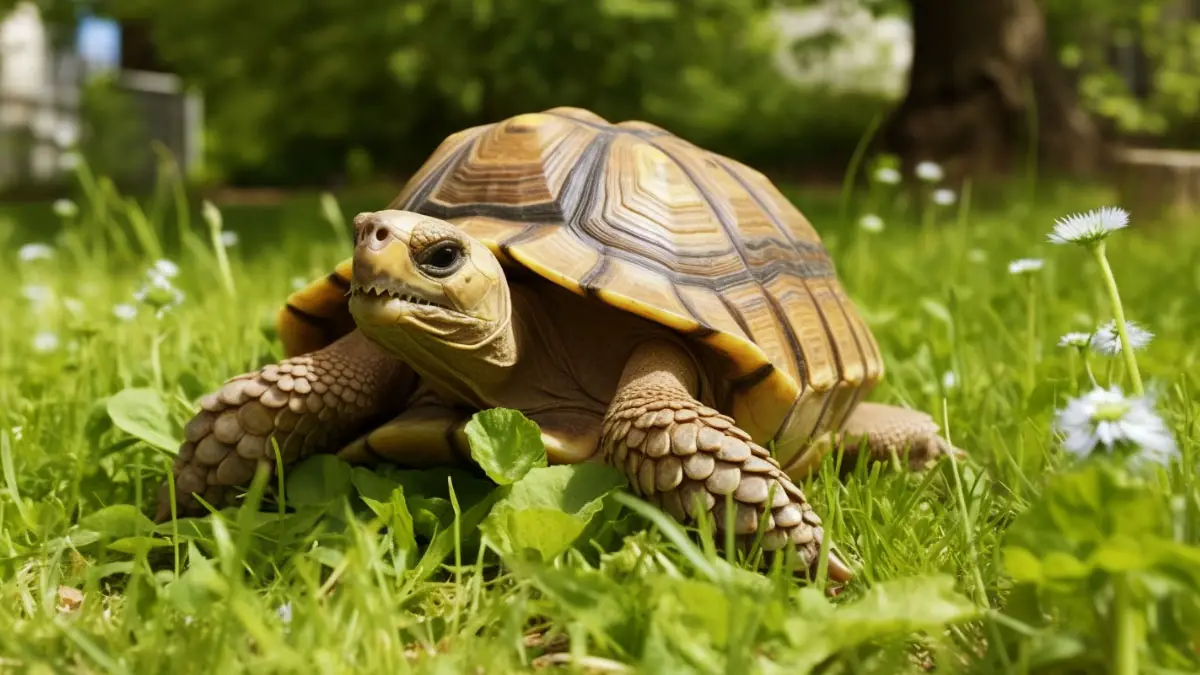Why Is My Tortoise Not Eating? (Possible Causes and How To Address Them)
Tortoises are herbivorous reptiles with simple dietary needs- mostly a mix of leafy greens, vegetables, and some fruits. However, they do develop issues just like any other animal. One of them is that they stop eating. And it has reasons behind it.
So, why is my tortoise not eating? Your tortoise may not eat due to stress, improper temperatures, lighting issues, illness, an unsuitable diet, dehydration, or a disrupted feeding routine. You’ll need to adjust your tortoise’s care and environment or visit a vet.
Understanding why your tortoise isn’t eating will help you know what adjustments to make and when to visit a vet. Let’s find out the reasons promptly.
Why Is My Tortoise Not Eating?
Contents
Tortoises have lower metabolisms and slower eating habits compared to other pets. However, you will still notice when yours isn’t eating. Typically, a new tortoise may go for several days without eating as it adjusts to its new environment. However, if the lack of appetite continues past the first week in a new tortoise, there are several potential reasons.
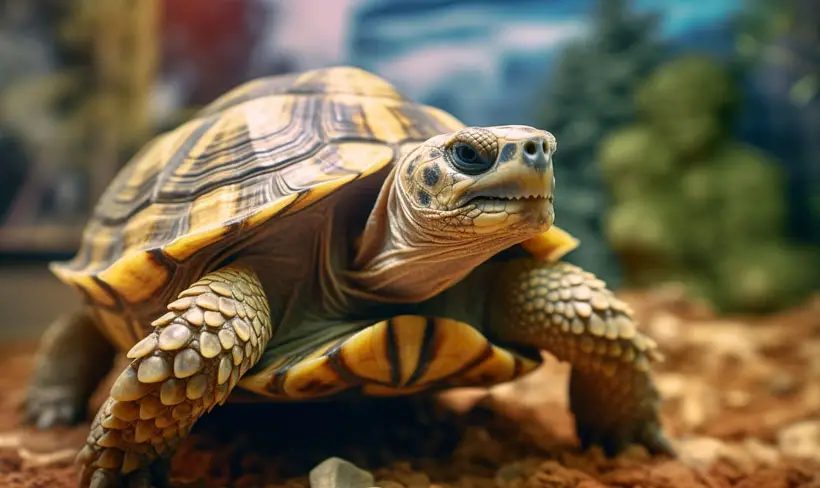
The Tortoise Is Stressed
Tortoises are slow-moving and stoic creatures that do not like change or disturbance. Even minor alterations to their enclosure or routines can cause them high-stress levels. Excessive handling and picking up a tortoise can also produce stress that inhibits appetite.
Tortoises feel most secure when left alone on the ground to graze and bask; so avoid overhandling and minimize changes. Give extra leafy greens after moving enclosures to help induce eating.
Improper Temperature
Tortoises are ectothermic animals, meaning their body temperature depends on external heat sources. They rely on proper thermal gradients to regulate body temperature and digest food. If their enclosure temperatures are too cold, tortoises cannot properly break down nutrients from food.
Temperatures that are too warm can also suppress appetite. Check that both the hot and cold ends of the enclosure offer temperatures within the correct range for the tortoise species.
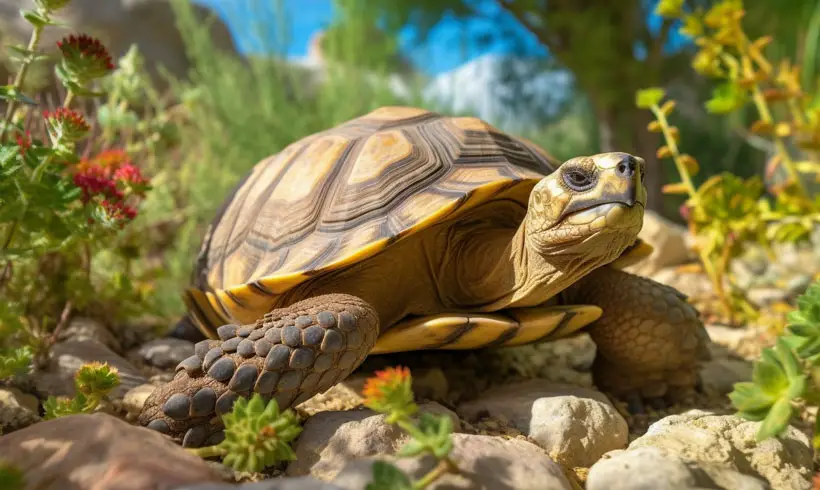
Inadequate Lighting
UVB lighting provides the UV rays tortoises need to produce vitamin D. Without enough active vitamin D; tortoises cannot properly absorb calcium from their food. Calcium deficiencies can quickly lead to loss of appetite.
The photoperiod created by UVB lighting also helps entrain circadian rhythms and simulates day/night cycles. Replace UVB bulbs every 6 months as their output decreases over time. Lack of proper UVB can rapidly impact appetite.
The Tortoise is Sick
Several common illnesses in tortoises produce decreased eating. Respiratory infections, parasites, and egg binding in females are the most notable causes.
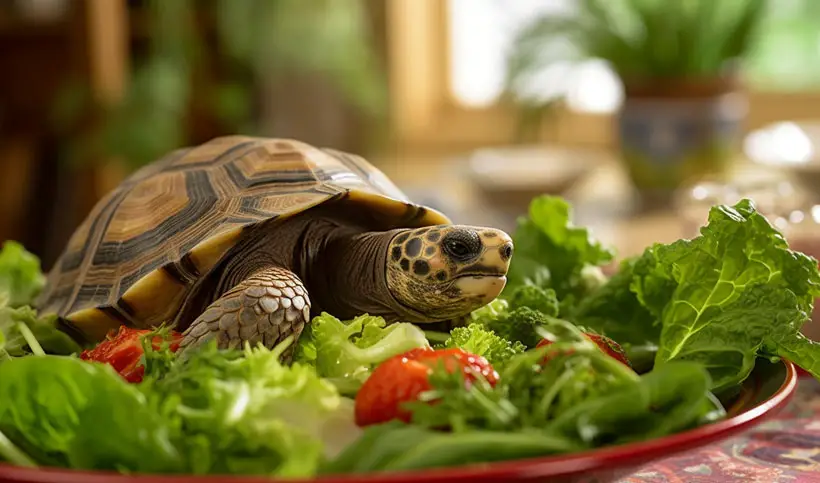
Look for symptoms like nasal discharge, eye swelling, labored breathing, lack of droppings, parasite eggs in droppings, and dramatic weight loss. An exam and testing by an exotic animal vet can diagnose the condition and recommend treatment to restore appetite.
Dietary Issues
Different tortoise species have very specific dietary requirements that must be met for optimal health and appetite. Commercial pelleted foods lack the nutritional balance that tortoises need and should not be used as a staple. Many fruits high in sugars are also inappropriate for various species.
Research the specific dietary needs of your tortoise’s species and provide the appropriate balance of leafy greens, vegetables, flowers, and limited fruits. An improperly balanced diet is a common cause of loss of appetite.
Dehydration
Dehydrated tortoise won’t have the energy to eat or move around. Dehydration can also make the tortoise confused, which makes eating even harder. Symptoms of dehydration include darker, more concentrated urine and sluggish behavior.
Soaking your tortoise weekly in shallow, warm water helps it rehydrate. Ensure fresh water is always available in the enclosure. You might want to apply secondary measures such as nasal–oral fluid administration or epicoelomic injection to help rehydrate the tortoise if the condition is extreme.
Here is a video of a vet explaining the common reasons why a tortoise isn’t eating:
When Should You Take Your Tortoise To A Vet?
A lack of appetite for tortoises should not be ignored. While some simple at-home remedies may help in short-term cases, long-term inappetence likely signals an underlying health issue that requires a vet exam. Here are some key signs that indicate a vet visit is needed:
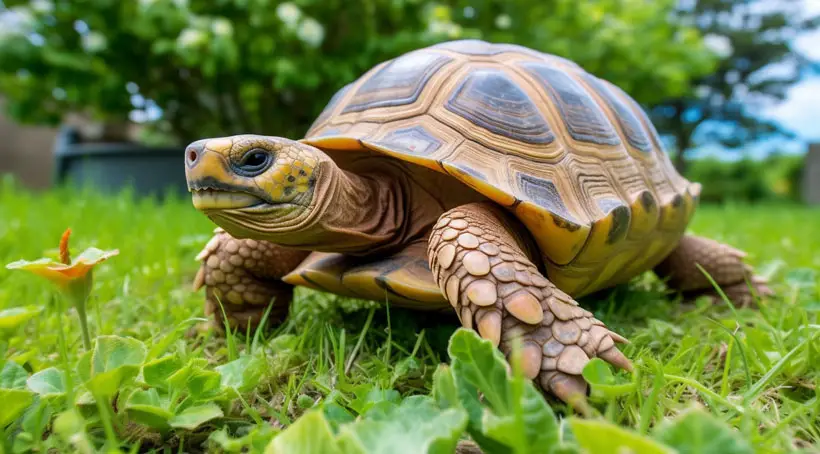
- The lack of appetite persists for over 2 weeks, despite trying remedies like reducing stress, optimizing temperatures, lighting, and hydration. This indicates there could be an underlying medical cause.
- Your tortoise is losing weight rapidly. Rapid weight loss and no eating are red flags for serious health issues.
- Your tortoise is exhibiting other concerning symptoms beyond just a lack of appetite. These can include lethargy, discharge from the eyes or nose, labored breathing, failure to pass droppings, abnormal markings or patches on the shell, etc.
- Your tortoise is showing abnormal behaviors that suggest pain or discomfort, like excessive hiding, inability to move normally, or reactions when touched in certain areas.
- Your tortoise is a senior or of advanced age. As tortoises age, they become more prone to diseases that impact appetite. It’s imperative to have older tortoises examined if they suddenly stop eating.
- Your current remedies and troubleshooting are not improving the situation at all. If lack of appetite persists despite optimizing environment, diet, and husbandry, vet intervention may be needed.
Frequently Asked Questions (FAQs)
Here are some most asked questions that help wrap up the topic.
Tortoises show pain through behavioral changes rather than vocalizations. They may retreat into their shell more, move sluggishly and react when certain areas are touched. Excessive rubbing of the face and eyes can also indicate pain.
The vet will ask about your tortoise’s history and symptoms. They will perform a physical exam checking the shell, ears, eyes, nose, and limbs.
Bloodwork and imaging tests like X-rays may also be recommended depending on the suspected issue. The vet can prescribe medicines to treat any diagnosed conditions.
Conclusion
Tortoises not eating for a sustained period due to range from environmental stress and improper temperatures to illnesses and dietary issues. When it comes to diagnosing and treating the problem, a vet visit is always the right answer.
With proper diet, lighting, temperatures, and hydration, one can resolve the issue of loss of appetite in their pet tortoise. Proper observation of other symptoms like weight loss, lethargy, and dull eyes can also help one reach the correct diagnosis and thus prompt the right solution.

